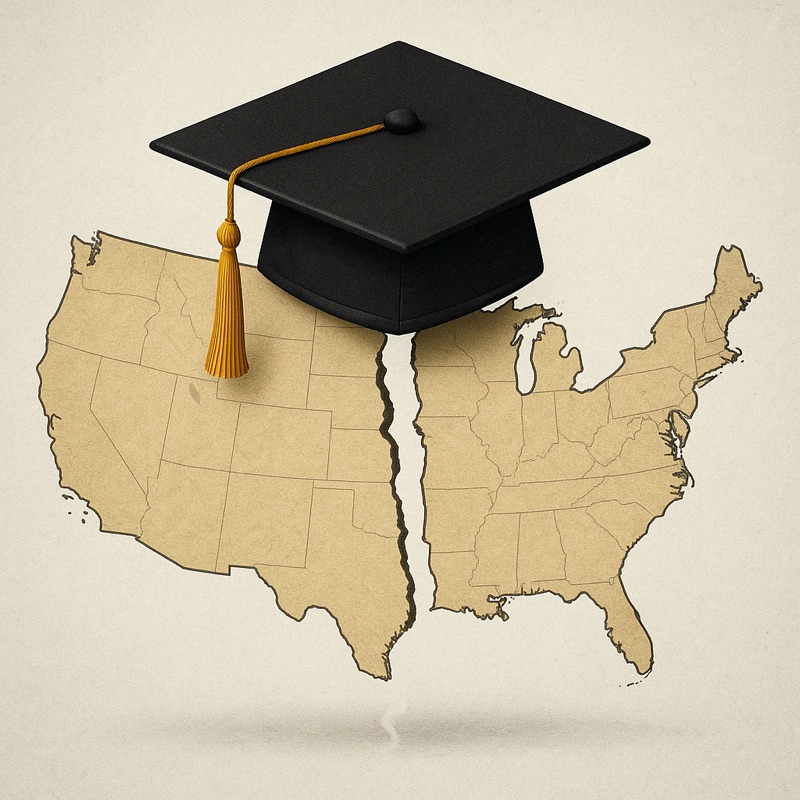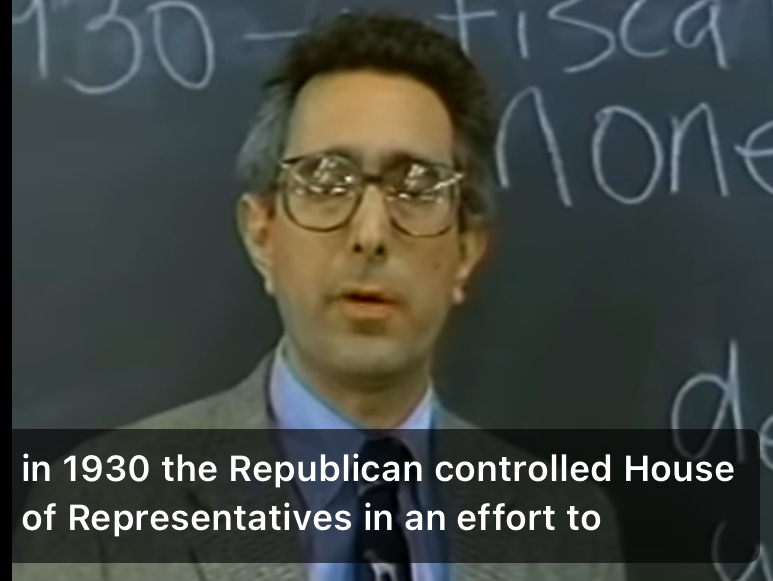
In a cultural moment when public trust in institutions teeters on a knife’s edge, two podcasts released within days of each other expose a fundamental schism in American political philosophy. On one side, we have The Daily, interviewing conservative activist Christopher Rufo, whose strategic aim is to bring universities to heel through the weaponization of federal funding. On the other, The Weekly with Jon Stewart hosts Michael Lewis, who argues passionately for the irreplaceable role of public servants and government-funded research in safeguarding human dignity and solving the problems private enterprise won’t touch.
What emerges from this juxtaposition is not merely a debate over DEI initiatives or free speech on campus. It is a struggle for the moral soul of our democracy.
The Rufo Doctrine: Policy by Pain
Christopher Rufo’s agenda, as described in The Daily, is chilling in its clarity and intention. He explicitly outlines a vision of higher education reform driven by what he calls “existential terror”—defunding universities to the point that they must either change or die. He celebrates the federal withholding of billions in research funding from elite institutions like Columbia, Harvard, and Princeton, framing it as a righteous campaign against left-wing ideology.
Rufo sees the academy not as a flawed but vital contributor to the American democratic experiment, but as a corrupted incubator of elitist, racially divisive ideologies. He proposes that only by gutting DEI programs, enforcing colorblind admissions, and “rebalancing” faculty ideologies (through financial cudgels, not intellectual engagement), can the American university be saved.
To Rufo, pain is not a regrettable consequence—it is the lever. In his words, reform only happens when “you take away their money, their power, their status.”
Lewis and Stewart: Government as Sacred Infrastructure
Michael Lewis, in conversation with Jon Stewart, offers a moral counterpoint that is not merely political, but deeply human. His stories of unsung civil servants—people like Arthur Allen, the oceanographer who saved countless lives through drift-pattern algorithms—are more than anecdotes. They are parables about vocation, sacrifice, and the quiet effectiveness of public service.
Lewis argues that government is where “all the problems the private sector can’t solve go.” It is the collective will, funded by our shared resources, to prevent suffering and promote wellbeing—whether through rescuing people lost at sea, researching brain-eating amoebas, or developing vaccines. He mourns the invisibility of this work, made possible only because these individuals do not see themselves as characters. They are, in Stewart’s words, “the givers”—demonized by those who exploit public ignorance for political gain.
The tragedy, as both Stewart and Lewis observe, is that the electorate has been conditioned to expect perfection from government, while forgiving the spectacular failures of private enterprise. “We admire moneymaking,” Lewis reflects, “and we’ve come to treat our government like teenagers treat their mothers: full of demands, devoid of gratitude.”
Moral Injury in the Public Sphere
From a moral injury perspective, Rufo’s campaign enacts a collective violation: it punishes institutions not for betraying the public trust, but for daring to do the long, slow work of social reckoning and equity. His rhetoric reconfigures care—especially care for historically marginalized communities—as corruption. It casts honest, if imperfect, attempts to name and repair systemic harm as illegitimate.
This is precisely what moral injury theorists point to as a wound to the soul: when individuals or institutions that aim to uphold the common good are vilified, isolated, or punished for their efforts. Rufo’s industrial-scale defunding strategy represents not reform, but retribution—a dangerous inversion of justice.
Meanwhile, Lewis gives us a vision of government as sacred infrastructure. It is not pristine, nor is it market-efficient. But it is a crucible of human commitment, holding the line against entropy, disease, and disaster. It is the awkward, indispensable “mom” who packs your lunch, tracks your hurricane, finds your child adrift in the ocean, and asks for little in return.
A Call to Reframe the Narrative
We need to ask: Who benefits when we are taught to despise the very institutions meant to protect us? Who stands to gain when research, education, and critical inquiry are stripped of funding and legitimacy?
We need not pretend our universities are perfect. But the solution to perceived ideological imbalance is not a hostile takeover. It is dialogue, transparency, and renewal—none of which can grow in a climate of fear.
In contrast to Rufo’s strategy of silencing through scarcity, Lewis and Stewart suggest another way: elevate the real stories. Honor the unsung. Make the invisible visible.
Because in the end, the most dangerous ideology is the one that convinces us that shared knowledge, collective investment, and public service are our enemies.
++++++++++++++++++++
If something in this post sparks a question, stirs your curiosity, or makes you pause—I'd love to hear from you. As a coach, I'm looking for folks who yearn to be ethically centered leaders and changemakers, and the spiritually curious who are navigating complexity and seeking clarity. If you want to learn more or explore whether coaching with me, reach out at pauloppedahl@gmail.com or visit http://www.pauloppedahl.com.
 When the stock market zigzags, fortunes are made—not always by accident.
When the stock market zigzags, fortunes are made—not always by accident. it’d be so relevant today?
it’d be so relevant today?
 https://unsplash.com/@priscilladupreez
https://unsplash.com/@priscilladupreez 1. Fear, not righteousness, drives the backlash against DEI and LGBTQ+ rights—what are they really afraid of?
1. Fear, not righteousness, drives the backlash against DEI and LGBTQ+ rights—what are they really afraid of?